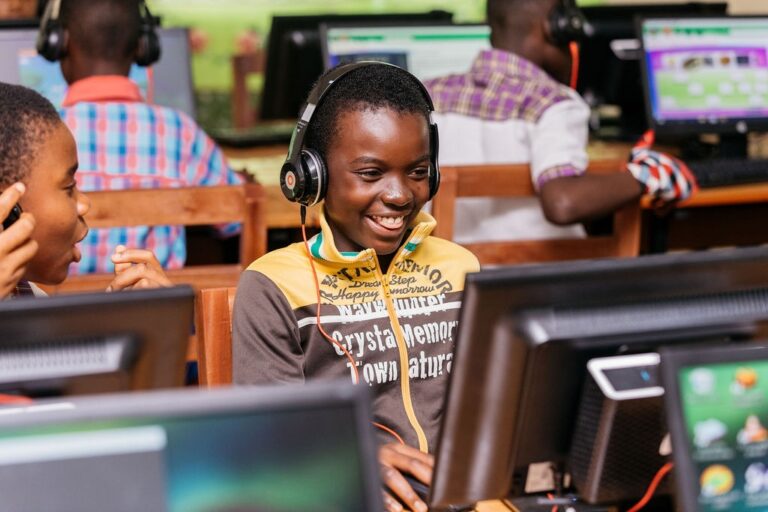October 5, 2017
You’ve probably heard this before: machines will one day replace humans on the job. At least, that’s what conventional wisdom says. But a new report suggests a different and brighter future.
According to the report from Pearson, Nesta and the Oxford Martin School titled “The Future of Work and Skills: Predicting Employment in the U.S. and UK Economies in 2030”, distinctly human cognitive and interpersonal skills will remain crucial in the workplace, despite technology’s growing influence. Machines will need humans—and workers will need to learn new skills to work alongside machines.
And one of the most important abilities humans will need to cultivate is a commitment to lifelong learning.
Lifelong Learning Can Happen Anywhere, Anytime

“With technology changing our lives at such a rapid pace, jobs are also changing quicker,” says Leah Jewell, Pearson’s Managing Director of Career Development and Employability.
“You’ll need a variety of skills to prepare you for jobs that don’t even exist today.”
Lifelong learning, Leah emphasizes, is about more than keeping up with the digital transformation of the workplace. The development of cognitive and interpersonal skills is just as important as fluency in the language of technology.
“Personal and social skills are an important driver of lifelong learning because they are skills you need for every job,” Leah adds.
Self-Directing Our Own Learning
“We used to think that education was just something that happened to young people. It happened in a physical place, a school building or a college campus,” Jeff Selingo, best-selling author of “The Networked University,” explains in the video above.
“Now, learning is going to be continual.”
A powerful benefit of technology is that learning is no longer restricted to classrooms. With a simple Google search, workers can find informative YouTube videos, immersive boot camps, and various other learning services – learning can now happen on our own schedules.
This new focus on ‘upskilling’ or ‘re-skilling’, Jeff explains, can be difficult to navigate, especially for people who grew up believing that a college degree would be enough.
“What’s going to be critical in this era where continual learning is absolutely necessary to keep up with the skills of the workplace is that we’re going to have to self-direct our own learning,” Jeff says. “And we don’t necessarily know how to do that coming out of school.”
This emphasis on self-directed learning is a challenging new strategy for most people, Leah adds. “We are often asked to do things we’ve never done before because our jobs are changing and people need to be asking themselves, ‘what additional skills do I need in this environment?’”
Employer Responsibility
As employees embrace the benefits of upskilling, Leah emphasizes that it is equally important for employers to play an active role in helping workers navigate the continual learning pathway.
First and foremost, Leah says, employers should be open and transparent about the skills they are looking for — now and in the future — to help guide employees toward the right education programs.
But a plan is only as good as its execution, and employer responsibility doesn’t end there.
“Employers also need to take the additional step of helping workers find the quality and level of training they need,” Leah says. “Whether providing it themselves or finding it someplace else.”
The Workplace of the Future
“Pearson is really sounding the alarm to say a lot has to change to make this happen,” Leah says.
To build out the pathways for workers to thrive professionally in the future, Leah explains, companies must adjust to the latest industrial revolution. “Momentum is building but many industries and schools have been slow to respond.”

Pearson’s role in the future, Leah says, is leveraging its position as an education leader to provide courses and research to employers, schools, and governments as they develop new education programs.
Leah says the fundamental principle behind lifelong learning efforts is simple: help workers remain gainfully employed as they navigate the unique challenges of the modern workplace.
“The whole point of lifelong learning is to help people stay employed or get a job; to help build out the pathways people need – at any stage of their life – to succeed.”



![[Preliminary Report] CRNA Collaborative Research for Exploring Factors Nurturing"Happy and Resilient" Children among Asian Countries](https://equity-ed.net/wp-content/uploads/2024/09/1725672182698.jpg)


